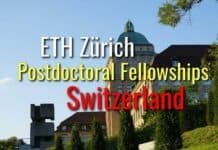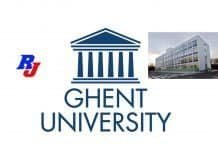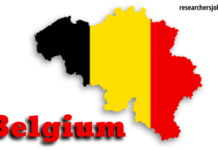Postdoc in Medical Geobiology: The Globe Institute, Faculty of Health and Medical Sciences, University of Copenhagen, is offering a 2-year Postdoctoral position in medical geology starting from 1st of October 2024 or earlier. This position is a part of a consortium grant funded by the Novo Nordisk Foundation, focusing on investigating the role of surfaces in enhancing the uptake, transfer, and fixation of extracellular DNA, and its implications for heritable variations in nature and the human body.
Summary Table:
- Designation: Postdoc in Medical Geobiology
- Research Area: Medical Geology
- Location: GLOBE Institute, Faculty of Health and Medical Sciences, University of Copenhagen, and IGN, Dept of Geosciences & Natural Resource Management, Geology Section, Faculty of Science, University of Copenhagen.
- Eligibility/Qualification: PhD in (Geo)microbiology or related field, experience in microbial cultivation techniques, fluorescent microscopy, horizontal gene transfer experiments, and interest in natural environments and the plastisphere.
- Last Date for Apply: 21 June 2024, 23.59pm CET.
Designation: Postdoc in Medical Geobiology
Research Area: Medical Geology
Location: GLOBE Institute, Faculty of Health and Medical Sciences, University of Copenhagen, and IGN, Dept of Geosciences & Natural Resource Management, Geology Section, Faculty of Science, University of Copenhagen.
Eligibility/Qualification:
- PhD in (Geo)microbiology or a related field such as microbial ecology and biogeochemistry
- Experience in microbial cultivation techniques
- Experience in fluorescent microscopy and staining techniques
- Experience in carrying out horizontal gene transfer experiments
- Interest in natural environments and the plastisphere
- Proficient English and communication skills, ability to work in teams
Job Description: The postdoctoral position involves investigating the role of natural and anthropogenic material surfaces in the distribution of antibiotic resistance genes. Responsibilities include conducting experiments on biofilm formation, horizontal gene transfer, and long-term evolution studies. Techniques involved include classical microbiological approaches, optical and fluorescent microscopy, and spectroscopic techniques.
How to Apply: Interested candidates should submit their application online in English by clicking ‘Apply now’ below. Required documents include a motivated letter of application, CV, certified copies of PhD and Master of Science certificates, and a list of publications, all in PDF format.
Last Date for Apply: 21 June 2024, 23.59pm CET.








